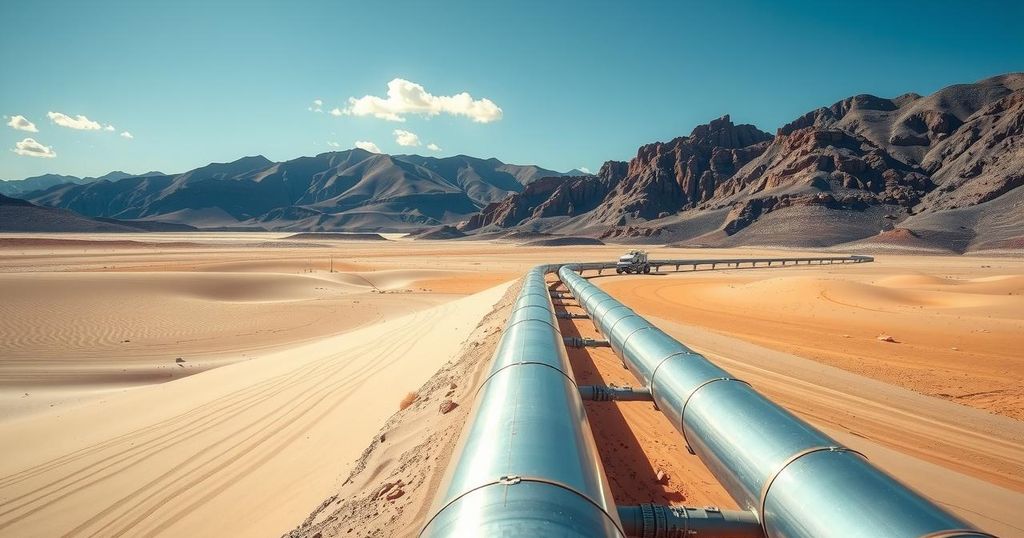Qatar plans to supply natural gas to Syria via Jordan to alleviate electricity shortages. This agreement reflects a strategic recalibration in Middle Eastern geopolitics post-conflict. Despite potential U.S. approval, significant infrastructural and political challenges remain for Syria’s energy reinstatement.
Twelve years ago, the ongoing unrest in Syria was largely attributed to access to resources, particularly in relation to a Qatari gas pipeline intended for Europe. This conflict led to the emergence and eventual decline of various terrorist factions, including ISIS, and culminated in the upheaval of the Assad regime. Currently, it appears that Qatar’s involvement is rekindling interests in gas pipeline access through Syria, indicating shifting geopolitical dynamics.
Presently, Qatar intends to supply natural gas to Syria via Jordan to enhance electricity production in the country. This agreement, described as significant support for Syria’s new administration, essentially positions Qatar to leverage its extensive gas reserves while circumventing previous adversities toward the Assad regime. Reports suggest that U.S. officials previously indicated that the deal received tacit approval from the Trump administration, even as specifics on this communication remain unclear.
Qatar’s state news agency confirmed that an agreement with Jordan has been established to provide gas to Syria, detailing that funds would be allocated to Jordan for this supply. The gas will be transported from Jordan’s port of Aqaba through the Arab Gas Pipeline, which runs northward into Syria. This infrastructure plan seeks to bolster electricity generation in Syria, particularly targeting the Deir Ali power plant, enhancing its output by potentially 400 megawatts per day.
U.S. engagement in the region appears to endure, even as it calibrates its strategy around sanctions. Historically, Syria has struggled with electricity shortages largely due to continued strife, exacerbated by the loss of Iranian oil supplies following the regime change. The interim government intends to address these shortages by importing electricity from Jordan, albeit with substantial infrastructural challenges remaining.
Jordan is reportedly set to supply Syria with up to 250 megawatts of electricity during non-peak hours, pending necessary adjustments to the country’s power network. Furthermore, a Western diplomat remarked that Doha’s gas strategy aligns with the intention of Gulf Allies, including Saudi Arabia, to provide meaningful assistance to the emerging Syrian leadership. However, concerns regarding U.S. sanctions linger, leading to hesitation in finalizing public sector funding transfers to Syria’s new government.
In conclusion, the development of Qatar supplying natural gas to Syria represents a critical pivot in regional energy dynamics following years of conflict. This initiative aims to not only address the pressing electricity needs of Syria but also serve as a facilitator for Qatar’s strategic gas interests in Europe. However, the successful implementation of this project is contingent upon overcoming political hurdles, infrastructural deficiencies, and compliance with U.S. regulations. As geopolitical interests continue to intertwine, the situation warrants close monitoring for future ramifications.
Original Source: oilprice.com






